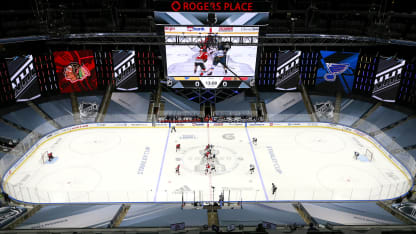THE VERDICT: Summer Hockey is Here
There was a time when the NHL went dark during the summer months, but now it's more alive than ever before

© Jeff Vinnick/Getty Images
Exhibition game sights and sounds
One is our Community
There was a time when the NHL went dark during the summer months, but now it's more alive than ever before

© Jeff Vinnick/Getty Images
Exhibition game sights and sounds
One is our Community